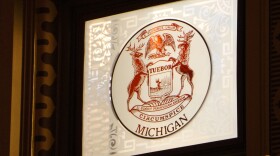(MPRN-Lansing) Some lawmakers in Lansing think the state Board of Education isn’t effective. They want to amend the state constitution to get rid of it – along with the board-appointed Superintendent of Public Instruction and State Board for Public Community and Junior Colleges.
Instead, the governor would appoint a Director of the Michigan Department of Education. Republican Representative Tim Kelly introduced the Amendment. He said the current system doesn’t work.
“We need more accountability,” he said. “And I think when you have the governor, the Senate, the House, state board, superintendent, all vying in this space it causes confusion and when everybody’s in charge, nobody’s in charge.”
The resolution to amend the state constitution was up for discussion and testimony during a House committee hearing Thursday. Phil Power of the Center for Michigan called the current system confused and dysfunctional,
“With no single person or institution responsible or capable of being held properly accountable for our miserable state of affairs.”
But opponents said it wouldn’t increase accountability. They also said replacing an elected board with a position appointed by the governor would reduce the voice of voters.
“This measure clearly smacks in the face of communities having control over governmental operation over public education,” said Dr. Jerome Reide of the NAACP. “This is a push to erode democracy.”
The resolution still has a long way to go. Because it would be an amendment to the state Constitution, it has to pass both the state House and Senate by two-thirds majorities. Then, it would have to be approved by voters.





